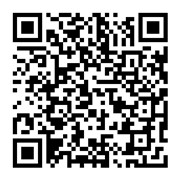掌握英语入门必备:详解start的用法和常用短语,让你轻松开口说英语!
掌握英语入门必备:详解start的用法和常用短语,让你轻松开口说英语!
1. 基本用法:
- 开始做某事:例如,"I need to start my work."(我需要开始工作了。)
- 启动/开始:例如,"The car started without any problems."(这辆车启动得没有任何问题。)
- 开始行动:例如,"We need to start planning for the new project."(我们需要开始为新项目规划。)
- 开始说话:例如,"Please start talking about your ideas."(请开始谈论你的想法。)
2. 常用短语:
- start with:以……开始,例如,"Let's start with the basics."(让我们从基础开始吧。)
- start over:重新开始,例如,"She decided to start over after her divorce."(她在离婚后决定重新开始。)
- start off:以……开始,例如,"The meeting started off well."(会议一开始进行得很好。)
- start up:启动,例如,"The company is starting up again after a long hiatus."(这家公司在经历了长时间的休业后又开始运营了。)
- start to do something:开始做某事,例如,"He started to cry when he heard the news."(他听到那个消息时开始哭了。)
3. 语境应用:
- 在对话中:"Can you start by telling me what happened?"(你能先告诉我发生了什么吗?)
- 在描述情况时:"The situation started to deteriorate after the meeting."(会议之后情况开始恶化。)
- 在计划或安排时:"We need to start planning for the next semester."(我们需要开始为下个学期做计划。)
4. 注意点:
- "Start" 作为及物动词时,后面通常跟名词、动名词或代词作宾语。
- "Start" 也可以作为不及物动词,表示“开始”的意思,后面可以跟介词短语或不定式作宾语。
- 当 "start" 用作不及物动词时,其意思变为“发生”,例如 "The meeting started without anyone present."(会议没有人出席就开始了。)
通过以上解释,你应该对 "start" 这个单词有了更深入的了解。记住,在实际交流中,多练习使用 "start" 可以帮助你更准确地表达自己的意思。


